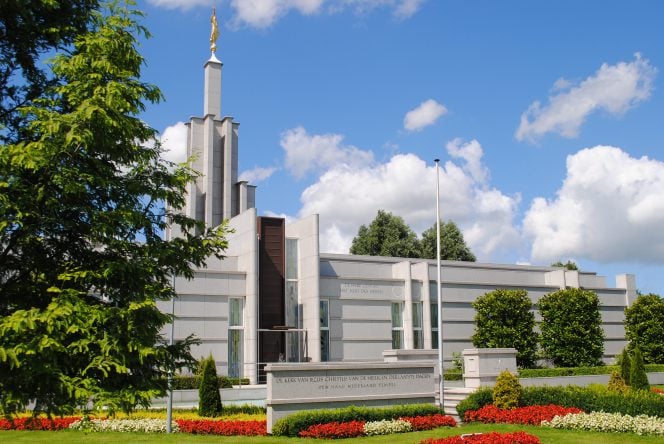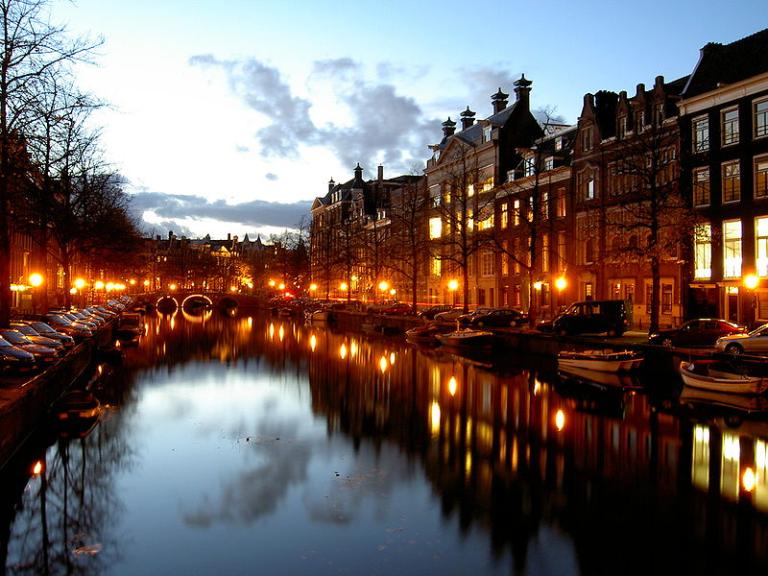
I continue, briefly, with the theme of yesterday’s entry, “Reminiscences of a beautiful but difficult mission area.” Another vignette:
Once — I think while I was serving in the mission office in Zürich, or shortly prior to that — I was sent out to the northwestern Swiss town of Biel (or, as it’s known in French, Bienne), which is about ninety minutes’ drive from Zürich, right on the line that divides the German-speaking part of the country from the French-speaking part. I can’t quite remember what we were doing; I seem to recall a delivery of some sort. Maybe of a film. Anyway, at one point before heading back to mission headquarters we were standing outside the meetinghouse talking with the missionaries, and they introduced us to one of their investigators who happened to be nearby.
I heard her name, but I forgot it shortly thereafter. I would estimate that she was roughly in her mid-fifties. Here, though, is the important part: She was an investigator, yes. But of the kind to which we missionaries sometimes referred as a Profi — meaning a “professional investigator” (professioneller Untersucher) She had first met with the missionaries approximately seven years before, and had long since been taught all of the missionary lessons many times over. She was on the edge of joining the Church, but apparently hadn’t quite been able to make the pivotal decision. (Although this was extreme, it wasn’t altogether unique. I was aware of many Swiss who had taken a very long time before accepting baptism and committing to Church membership.) She had, in fact, fairly recently attended the big pan-European area conference of the Church that had been held in Munich, over which President Harold B. Lee had presided.
Anyway, she and I spoke for a few minutes. And she was baptized the following week. I never met her again, but I was told shortly thereafter that she had described her conversation with me as the turning point for her. After all those seven years, it was that brief meeting that had finally moved her to decide to be baptized.
Now, I would love to be able to take credit for her conversion. But I can’t. I didn’t teach her a lesson. We didn’t ponder doctrines or parse the scriptures or consider the history of the Restoration. We talked briefly about her experience in Munich. Heck, I seriously believe that we remarked upon the memorably beautiful, clear weather that day. And that was pretty much it. I said nothing wise or insightful or profound to her. We simply shot the breeze.
The elders and sisters in the Switzerland Zürich Mission didn’t teach huge numbers of missionary lessons in Switzerland in my day. But I had, nonetheless, taught a fair number of them. My German was reasonably fluent, and I thought that our position was persuasive. Sometimes I would think to myself after a good discussion, “They just have to see that this is true!” But very few of those people ever joined the Church. No matter how convincing I thought I was.
And then I had that encounter out there in Biel.
I’ve reflected on this little story over and over again in the decades since it happened. I would love to be able to bottle whatever it was that had such an impact on that Swiss investigator and pass it on to others. But I have not the faintest idea what “it” was. And, just as crucially, I have no reason to believe that it would have the same impact on anybody else. It was, I think, very personal to her.
I’ve related the story several times to missionaries that I’ve sent out and to others who were about to leave on missions. The point that I draw from the memory is that — as we should all know already, but sometimes forget — it isn’t the missionary who converts people. It’s the Spirit. The missionary’s duty is to do the work and to seek to bring the Spirit into discussions. Even then, though, the missionary cannot guarantee success, no matter how hard he or she tries — because, of course, it’s up to the investigator, a free and independent agent, whether to hear the Spirit and whether to act upon the divine guidance that the Spirit will convey.

These three items were posted today on the website of the Interpreter Foundation:
“Nibley Lectures: Time Vindicates the Prophets — Prophets and Preachers”
Between 7 March 2054 and 17 October 1954, Hugh Nibley delivered a series of thirty weekly lectures on KSL Radio that were also published as pamphlets. The series, which was called “Time Vindicates the Prophets,” was given in answer to those who were challenging the right of members of the Church of Jesus Christ of Latter-day Saints to call themselves Christians.
This lecture discusses the claim that a prophet is just another preacher, and explains that this is false.
The Interpreter Radio Roundtable for Come, Follow Me Old Testament Lesson 35, “Let Every Thing That Hath Breath Praise the Lord” on Psalms 102–103; 110; 116–119; 127–128; 135–139; 146–150, featured Martin Tanner, Kris Frederickson, and Mike Parker. This roundtable has now been extracted from the 17 July 2022 broadcast of the Interpreter Radio Show. The complete show may be heard at https://interpreterfoundation.org/interpreter-radio-show-July-17-2022/. The Interpreter Radio Show can be heard on Sunday evenings, every single week of the year, from 7 to 9 PM (MDT), on K-TALK, AM 1640, or you can listen live on the Internet at ktalkmedia.com. Or you can hold your ear very close to a railroad track and try to hear it that way.
Jonn Claybaugh has kindly contributed yet another of his concise notes for students and teachers of the Come, Follow Me curriculum.
Posted from Amsterdam, The Netherlands












